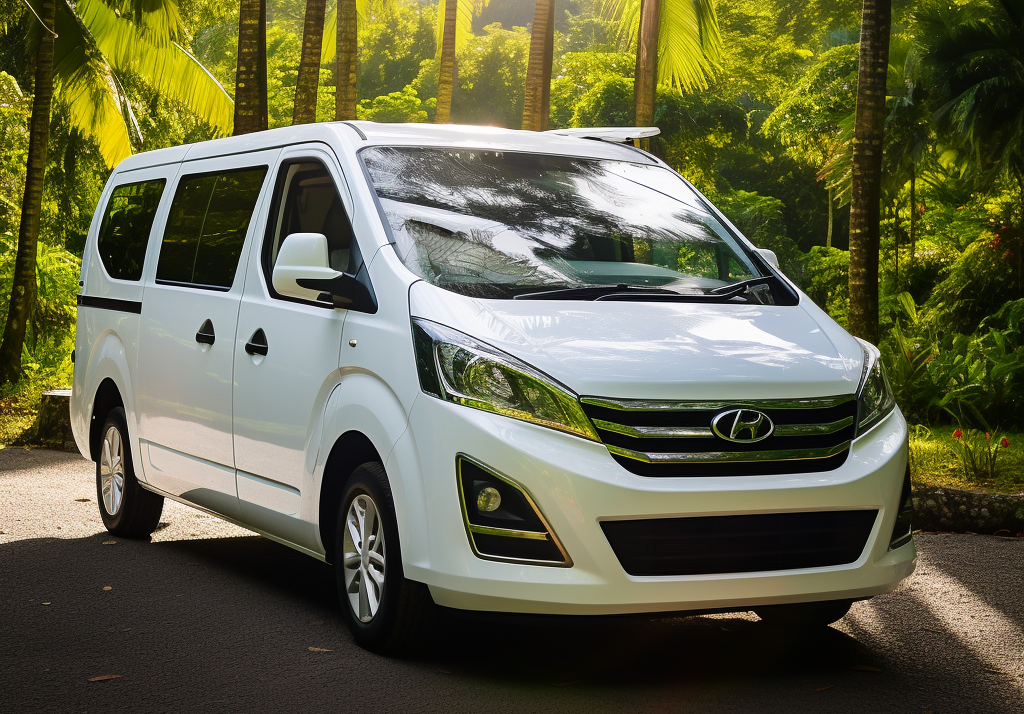Is Costa Rica Expensive?
Cost of Hotels and Accommodation
When comparing accommodation costs in Costa Rica with other Central American countries, it’s evident that prices are somewhat higher, largely due to the country’s booming tourism industry. However, by North American standards, these prices remain quite manageable.
Accommodations in the Guanacaste province, known for its stunning beaches and high-end luxury resorts, typically command the highest prices. In contrast, lodging in more rural areas can be significantly more affordable. Opting for hotels closer to the beach or those offering more amenities can lead to prices around $200 USD per night.
For those seeking the pinnacle of luxury, including beachfront access, pools, concierge services, and on-site dining, rates can start at $400 USD and soar to over $1,000 USD per night.
Cost of Food and Dining in Costa Rica
When it comes to food and dining, Costa Rica offers a diverse culinary scene that caters to all tastes and budgets. Whether you’re looking for local street vendors or upscale restaurants, you’ll find plenty of options to satisfy your cravings.
The cost of food and dining in Costa Rica can vary depending on several factors, including the type of establishment, location, and dining preferences. In general, dining out in Costa Rica can be affordable compared to many other countries.
Local “sodas” (small eateries) and street food stalls offer budget-friendly options, with meals ranging from $5 to $10 per person. These places serve typical Costa Rican dishes such as casados (rice, beans, and meat or fish), gallo pinto (rice and beans), and ceviche.
If you prefer dining at mid-range or upscale restaurants, the prices will be higher but still reasonable. A meal at a casual restaurant can range from $10 to $20 per person, while a three-course meal at a higher-end restaurant can cost around $30 to $50 or more per person. It’s worth noting that dining prices can be higher in touristy areas and popular beachfront restaurants.
If you prefer international flavors, there are also numerous restaurants offering cuisines from around the world including Italian, Chinese, Indian and more. The prices at these establishments can vary depending on the location and level of luxury but generally range from $10-$30 per person.
For those who want to save even more money on dining out expenses – consider exploring the local markets where fresh fruits and vegetables are abundant! You can buy ingredients to cook your own meals at home or enjoy some delicious street food options such as empanadas or ceviche.
When it comes to grocery expenses, the cost of food in Costa Rica can vary depending on whether you opt for local produce and products or imported items. Local markets and supermarkets offer a wide range of fresh fruits, vegetables, meat, and dairy products at relatively affordable prices.
On average, a weekly grocery budget for a single person can range from $30 to $50, while a family’s grocery expenses may amount to $200 or more per week, depending on their dietary preferences and consumption habits. Shopping locally and cooking at home can be a cost-effective option for those looking to manage their food expenses while enjoying the flavors of Costa Rica.
Cost of Transportation in Costa Rica
Getting around in Costa Rica can be an adventure in itself. From bustling cities to tranquil beach towns, there are various modes of transportation available to explore this beautiful country.
The cost of transportation in Costa Rica can vary depending on the mode of transportation and the distance traveled. Public transportation options, such as buses, are widely available and offer an affordable way to get around the country.
One popular and affordable option is taking public buses. The bus network in Costa Rica is extensive and covers most major destinations. Bus fares within cities or for short distances typically range from $0.50 to $1.50, making it an economical choice for budget-conscious travelers. Inter-city bus fares are also reasonable, with prices ranging from $5 to $15 for longer journeys between major towns and cities.
For those who prefer more convenience and flexibility, taxis and ride-sharing services like Uber are available in Costa Rica. Taxi fares can vary depending on the distance traveled and the time of day. In urban areas, a short taxi ride within the city center may cost around $3 to $5, while longer trips can range from $10 to $30 or more. Uber fares are usually similar to or slightly lower than taxi fares.
Another cost-effective and popular transportation option in Costa Rica is traveling by shared van or minibus. Given Costa Rica’s compact size, these shared rides allow you to traverse considerable distances efficiently. Fares for longer trips typically range from $20 to $30 USD, offering good value for the journey. These vans often come equipped with air conditioning for added comfort, and provide the convenience of picking up and dropping off passengers at accessible locations.
If you plan to explore different regions of Costa Rica or venture into more remote areas, renting a car can be a popular option. Car rental prices vary depending on the type of vehicle, rental duration, and insurance coverage. On average, daily car rental rates can range from $30 to $70 or more, depending on the vehicle’s size and features. It’s important to factor in additional expenses such as fuel costs and parking fees when budgeting for transportation expenses in Costa Rica.
If you prefer eco-friendly transportation options, bicycles are becoming increasingly popular in many cities and towns. Many hotels offer bike rentals at reasonable rates, allowing you to enjoy the sights at your own pace while reducing your carbon footprint.
Domestic flights can be an efficient way to cover long distances within Costa Rica quickly. Prices vary depending on the destination and time of booking but generally range from $50-$150 one-way.



Cost of Entertainment in Costa Rica
When it comes to entertainment, Costa Rica offers a wide range of options that cater to various interests and budgets. Whether you’re looking for outdoor activities, cultural experiences, or vibrant nightlife, this tropical paradise has something for everyone.
The cost of entertainment in Costa Rica can vary depending on the type of activities and attractions you choose to engage in. The country offers a wide range of options to suit different interests and budgets.
For nature lovers, exploring the country’s national parks is a must-do activity. From hiking through lush rainforests to spotting exotic wildlife like monkeys and toucans, there are endless opportunities to connect with nature.
Exploring the natural wonders of Costa Rica, such as national parks, volcanoes, and beaches, often involves nominal entrance fees ranging from $10 to $20 per person. These fees contribute to the maintenance and conservation efforts of these protected areas.
For adventure enthusiasts, Costa Rica offers thrilling activities like zip-lining, white-water rafting, and surfing. The cost of these activities can vary depending on the location and duration. Zip-lining adventures, for example, may range from $40 to $100 per person, while white-water rafting trips can range from $60 to $150 or more, depending on the level of difficulty and duration.
If you prefer water-based activities, the pristine beaches along Costa Rica’s coastlines offer plenty of opportunities for surfing, snorkeling, and diving. Equipment rental and lessons can vary in price depending on the location and provider. Surfing lessons and board rentals typically start at around $20 per hour.
When it comes to dining and nightlife, Costa Rica offers a vibrant scene with a variety of options. The cost of dining out at restaurants and enjoying drinks can vary depending on the location and establishment.
A meal at a mid-range restaurant can range from $10 to $30 per person, excluding alcoholic beverages. Nightclubs and bars often have cover charges, typically ranging from $5 to $20, depending on the venue and the night of the week.
For those interested in cultural experiences, attending local festivals and events is a great way to immerse yourself in Costa Rican traditions. Many of these festivities are free or have minimal entry fees.
Overall, the cost of entertainment in Costa Rica can be affordable if you plan your activities wisely. With so many options available – from natural wonders to cultural experiences – there’s no shortage of things to do while immersing yourself in this beautiful Central American destination.



FAQ Section: The Cost of living in Costa Rica
Yes, compared to many developed countries, Costa Rica offers a relatively affordable cost of living.
Costa Rica’s cost of living is generally higher than in some neighboring Central American countries like Nicaragua and Honduras but more affordable than Panama.
Generally, rural areas and smaller towns tend to have a lower cost of living compared to major cities like San Jose.
The cost of accommodation varies depending on the location, but a moderate apartment rental can range from $600 to $1200 per month.
The cost of utilities, such as electricity, water, and internet, is relatively reasonable, but it can vary depending on your usage and location.
Yes, public transportation, such as buses, is an economical way to get around the country, and fares are generally reasonable.
The monthly cost of groceries for a single person can range from $150 to $300, depending on their dietary habits and shopping preferences.
Yes, Costa Rica offers a variety of affordable dining options, including “sodas,” which are small local eateries known for their budget-friendly meals.
While US dollars are widely accepted in many places, it’s generally best to use the local currency, the Costa Rican colón, to get the most accurate pricing.
Budgeting around $100 to $300 per month for entertainment and leisure activities should allow you to enjoy various experiences.
Yes, shopping at local markets, using public transportation, and exploring free outdoor activities can help you save money while living in Costa Rica.
Allocating around $200 to $400 per month for miscellaneous expenses should cover unforeseen costs and personal expenses.
Costa Rica offers several tax benefits for foreign residents, making it an attractive destination for expatriates seeking favorable tax conditions.
It’s advisable to have at least six months’ worth of living expenses saved before relocating to Costa Rica to ensure a smooth transition.
Note: Costs provided are approximate and can vary depending on factors such as location, lifestyle choices, and personal circumstances. It is advisable to research and gather specific information relevant to your individual situation.
